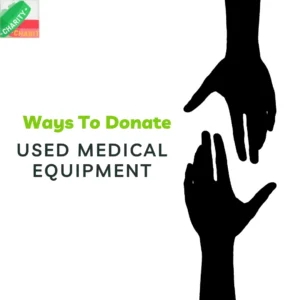How Often Can I Donate Sperm : Sperm donation is a process by which a man donates his sperm to be used in the fertilization of an egg in order to create a pregnancy. The donated sperm can be used to help couples or individuals who are struggling with infertility, or it can be used by single women or same-sex couples who wish to start a family. Sperm donation has helped countless people become parents, and it’s an important and rewarding decision for those who choose to donate.
In this blog, we’ll explore the process of sperm donation, including the screening and donation process, the rights and responsibilities of both donors and recipients, and the emotional and ethical considerations involved. Whether you’re considering becoming a sperm donor, or you’re just curious about the process, this blog is a great resource for gaining a deeper understanding of sperm donation.
Who Need Donated Sperms?
There is a critical demand for sperm Donation for the following reasons:
- Infertility: Sperm donation is often necessary for couples who are unable to conceive naturally due to infertility issues in the male partner.
- Genetic disorders: Some men may choose to donate sperm if they carry a genetic disorder that they do not want to pass on to their offspring.
- Single women or same-sex couples: Sperm donation allows single women or same-sex couples to start a family without a male partner.
- Low sperm count: Men with low sperm count or poor sperm quality may also opt for sperm donation as a means of fathering a child.
- Posthumous donation: In some cases, sperm donation may be used for posthumous fatherhood, where sperm is collected from a deceased man and used for artificial insemination.
- Helping others: Some men may choose to donate sperm out of a sense of altruism and to help other couples or individuals start a family.
How Often You Can Donate Your Sperm?
It varies depending on the sperm bank or clinic, but typically men can donate sperm every 2-7 days, with a maximum of 2-3 donations per week.
How Does Sperm Donation Work?
The screening process for sperm donation typically involves the following steps:
- Initial application: Potential donors complete an initial application that includes personal and medical information. This information is used to determine if the individual meets the basic criteria for sperm donation.
- Medical evaluation: Potential donors undergo a comprehensive medical examination, which includes a physical examination, blood tests, and genetic testing. This is done to ensure that the sperm donor is healthy and free of any genetic disorders.
- Psychological evaluation: Potential donors also undergo a psychological evaluation to ensure they are emotionally stable and have a healthy attitude towards sperm donation.
- Lifestyle assessment: Potential donors are screened for their lifestyle habits, including smoking, drug and alcohol use, and sexual behavior. This is done to minimize the risk of transmitting diseases or genetic disorders to the recipient.
- Quarantine period: Once a sperm donor has been approved, their sperm is quarantined for a minimum of six months. During this time, the donor is tested again for any diseases or genetic disorders.
- Final approval: After the quarantine period, the sperm is tested again and if it meets the standards, the sperm is approved for use in artificial insemination or in vitro fertilization.
- Ongoing monitoring: Sperm donors are required to remain in contact with the sperm bank or clinic and are subject to ongoing testing to ensure the safety and quality of the sperm.
Where Can You Donate Your Sperm In USA?
You can donate sperm at a sperm bank or fertility clinic. Some popular sperm banks and clinics in the USA include:
- California Cryobank
- Fairfax Cryobank
- Cryogenic Laboratories, Inc.
- New England Cryogenic Center
- Cryos International USA
- Xytex Cryo International
It is important to note that each sperm bank or clinic has its own eligibility requirements and process for sperm donation, so it is best to research and contact the specific location you are interested in to learn more.
How Old Do You Have To Be To Donate Sperm?
The recommended age range for sperm donation varies depending on the country and the sperm bank or fertility clinic. In the United States, sperm donors are typically between the ages of 18 and 39. In some cases, sperm donors may be accepted up to age 45, but this is rare. It is important to note that sperm banks and clinics may have additional requirements or restrictions, such as a minimum educational level or physical and genetic health conditions.
Is It Safe To Donate The Sperm?
Yes, it is generally considered safe to donate sperm. Potential donors are screened for medical and genetic conditions, and the sperm is thoroughly tested before it is used for artificial insemination or in vitro fertilization. However, as with any medical procedure, there is a small risk of complications. Consult with a fertility clinic or physician for more information about the specific risks and benefits of sperm donation.
Can Redheads Donate Sperm to a Sperm Bank?
Yes, redheads can donate sperm to a sperm bank as long as they meet the eligibility criteria for sperm donors, which typically includes being in good health, being between the ages of 18-40, and passing a thorough medical and genetic screening process.
What Other Issues Could Arise from Being a Sperm Donor?
Being a sperm donor may lead to several issues, including legal, emotional, and social.
- Legal issues: Sperm donors may be held financially responsible for any children that result from their donations, depending on the laws in their country or state.
- Emotional issues: Some sperm donors may experience feelings of guilt, regret, or a desire to have a relationship with the child they helped create.
- Social issues: Sperm donors may face questions and judgment from friends, family, and members of the community about their decision to become a donor.
- Anonymous donors may face the possibility of being located by their biological child, despite the anonymity being guaranteed.
- Genetic disorders: Sperm donors are usually screened for genetic disorders, but it is possible for a disorder to go undetected. There is also a risk that if the sperm donor has passed on a genetic disorder, the child may also have it.
It’s important for sperm donors to consider these issues carefully before making the decision to donate sperm, and seek counseling if necessary.
Conclusion
In conclusion, sperm donation is a selfless act that can help couples and individuals fulfill their dream of having a child. It is a safe and secure process that is closely regulated by medical professionals to ensure the health and well-being of both donors and recipients. It is also an opportunity for donors to make a positive impact on someone’s life, while also helping to build families. If you are considering sperm donation, it is important to do your research and talk to a medical professional to ensure that it is the right choice for you.
FAQs of Sperm Donation Process
1 . How much do you get for donating sperm?
The amount you will earn for your sperm samples varies depending on the sperm bank or clinic you choose to work with. Typically, compensation ranges from $50 to $150 per sample, with some clinics offering more for high-quality samples or repeat donors. It is important to research different sperm banks and clinics to find the best compensation for your samples. Additionally, keep in mind that most sperm banks and clinics have specific requirements for donors, such as age, health, and genetic history, that may affect your eligibility for compensation.
2. Do you require proof of documents to donate the sperm?
Yes, sperm banks usually require proof of identity, medical history, and genetic information from donors. This may include a government-issued ID, proof of citizenship, and proof of negative results for certain genetic disorders or diseases. Donors may also be required to provide proof of their education and occupation, as well as consent to undergo genetic testing.
3. Do I have to live in the United States to donate?
No, you do not have to live in the United States to donate sperm. However, the specific requirements and regulations for sperm donation may vary depending on the country and the sperm bank or fertility clinic you are working with. It is important to research and understand the guidelines and regulations in the country where you plan to donate sperm..
4. Am I allowed to donate with a student visa? F-1? J-1?
Non-migrant foreign students who are J-1, F-1, or M-1 visa holders might only be qualified to work in particular circumstances. It is your obligation to confirm with your visa sponsor whether you are permitted to work at California Cryobank and get a salary in the US. The terms of your visa might be violated by your participation with California Cryobank, even if it might not be against any employment laws.
5. How often am I compensated (daily, weekly, monthly)?
It depends on the sperm donation center or clinic you are working with. Some centers may compensate you on a weekly or monthly basis, while others may only compensate you after each donation or once a month. It is important to discuss compensation and payment options with the center before starting to donate sperm.
6. Will I know who uses my semen specimens?
No, the identity of the person or persons who use your semen specimens will not be revealed to you. Sperm banks and fertility clinics typically have strict confidentiality policies in place to protect the privacy of all involved parties.
7. why can’t gingers donate sperm?
Gingers can donate sperm, just like any other person. There may be some medical or genetic conditions that would disqualify them from being a sperm donor, but this would be determined on a case-by-case basis by a medical professional.
8. can gay men donate sperm?
Yes, gay men can donate sperm. The process for sperm donation is the same for all men, regardless of sexual orientation. However, sperm banks may have their own policies and guidelines for accepting sperm donors, and some may have additional screening or testing requirements for gay men. It is important to check with the specific sperm bank for their policies and procedures.




